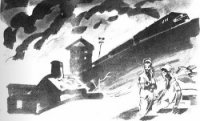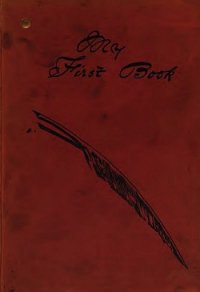Operation Nemesis: The Assassination Plot that Avenged the Armenian Genocide - Bogosian Eric (мир книг .txt) 📗
The volunteer Armenian battalion was led by General Antranig Ozanian, a veteran fedayee, known by all simply as Antranig. Antranig had the look of a storybook Caucasian paramilitary soldier, with a dramatic black mustache, his chest crisscrossed with bandoliers of bullets, his head topped with an astrakhan hat adding an extra few inches of height. By World War I, Antranig was legendary, having thrown himself into violent confrontations with Muslims since the 1890s, both as an insurgent against Ottoman forces in Asia Minor and Bulgaria and, some say, as an ARF assassin. He had squabbled with the ARF leadership, never trusting their affiliation with the Committee of Union and Progress, and for this reason had always been considered a maverick. (In his later years he would distance himself from the ARF altogether.) Antranig’s total commitment made him invaluable to the cause. He fiercely refused to retreat from any battle zone, and he was nothing short of brutal when it came to dealing with Muslims. (When World War I fighting was over, he would be accused of war crimes by the Ottomans.) He was typical of the non-intellectual component of the ARF forces. According to the biographer of another renowned fedayee fighter, Murad, both men were “almost illiterate.”1 A large monument of Antranig astride a rearing horse stands at his gravesite at the Pere Lachaise cemetery in Paris.
In Tiflis, the tsar’s commanders had set up dormitories for the volunteers, and it was here that Tehlirian bunked while waiting for deployment. Every morning after a quick breakfast of bread and tea, commanders would gather up the young recruits, march them to the parade grounds, and instruct them in the fundamentals of warfare. Under his Russian trainers, Tehlirian learned how to handle a weapon and how to survive by his wits. Thus began his transformation from country boy to disciplined soldier.
Tehlirian loved spending his off-hours in the sophisticated and populous Georgian capital city, very different from his small hometown. In 1914, a greater concentration of Armenians lived in Tiflis than anywhere else in the world. Georgia, primarily a Christian country, had embraced these Christian Ottomans who had roamed beyond the borders of the empire. The flourishing Armenian culture and society in the city supported a growing Armenian merchant class. In the Anatoli Restaurant, famous for its shish kebab and Georgian wines, Tehlirian found plenty of friends from his home vilayet.
Tehlirian would trudge the snowy streets toward Yerevan Square, the center of Armenian life in Tiflis. Here he would hang out in the Russian coffeehouses where the artistic types and his fellow volunteers gathered to argue politics. Influenced by the intellectual traditions of Russia, the Armenian intelligentsia residing in Georgia were deeply literate. These young men who gathered to drink and eat and trade stories were for the most part poor country boys with more passion than insight. They were like the emaciated young antiheroes of Dostoyevsky and Chekhov, too full of idealism for their own good. Though the elders of the Armenian diaspora were effective and industrious capitalists, many of their progeny were more interested in confrontation.
The Hamidian massacres of 1895–96 had taken the lives of thousands of Ottoman Armenians when most of Tehlirian’s new young friends were only infants. These young Armenians had grown up hearing the stories of Kurdish atrocities, but they had not experienced the terror firsthand. Intoxicated with the patriotic promise of a national homeland, they did not fear the prospect of violence. In fact they welcomed it. They were eager to test their mettle against the hated enemy, “the Turk.” They were ready to throw off the “yoke of servitude” (as Tashnag rhetoric had it) forced upon the Armenians by their Muslim masters.
One day, in the Aramiants cafe, a popular spot for Armenians in Tiflis, Tehlirian ran into Nishan Tatigian, a grizzled former ARF fighter who hailed from Tehlirian’s hometown of Erzincan. The meeting sparked feelings of nostalgia and even homesickness. Tatigian insisted that the young soldier join him for dinner at his home. Upon his arrival, Nishan’s wife pumped the young man for gossip about her former neighbors. It had been eighteen months since Tehlirian had left the town, even longer for the Tatigians. Their bond of homeland and politics was deep and genuine.
Living with the Tatigians was their teenaged daughter Anahid. This was an era when Armenian women rarely left the confines of home. Over dinner, shy Anahid found the teenaged would-be rebel spellbinding as he described his life as a volunteer fighter. As she laughed at his stories, Tehlirian was stirred by her interest in him. Years later he would write in his autobiography that he felt like he “was drunk.” Tehlirian’s romantic feelings for Anahid tested his commitment to the Tashnag cause. In his autobiography he added that he hadn’t intended to be “in love.” But, he said, “I felt like I’d always known her.” The fedayee was a holy warrior, saintly in his devotion, pure. Fighters were expected to keep their desires in check until completion of the mission. To volunteer as a revolutionary was to make a commitment as serious as one’s commitment to God. Nothing should stand in the way of one’s dedication. Soldiers had no time for a love life.2
When the call came for the troops to move out, Tehlirian opted against seeing Anahid one last time. He was going away, perhaps forever, to lay his life on the altar of the cause. This was no time to be distracted. Filled with emotion, torn between love and honor, he wandered the narrow winding streets of old Tiflis in a dreamlike state. He passed a boy standing alone on a bridge. Impulsively, like some kind of Armenian Raskolnikov, Tehlirian emptied his pockets of rubles and dumped the money into the boy’s hands. Then in a trance he resumed his wandering. He found himself standing before the Tatigians’ shop, not quite sure how he got there. He interpreted this serendipitous moment as proof that Anahid was his destiny. Tehlirian went inside and spent a few precious moments with his beloved until, moved to tears, he finally tore himself away and joined his comrades. At least this is how he tells the story in his intensely lyrical autobiography.
A National Bureau run by the ARF coordinated incorporation of the hastily trained and outfitted Armenian volunteers into the greater Russian forces. In the early spring of 1915 the decision was made to move out, and on March 28 Antranig’s sub-commander, General Sebouh, and his legion of two hundred Armenian fighters were sent by train toward the front, where sporadic clashes had broken out between Ottomans and Russians. The first stop for the recruits was Alexandropol (Gyumri), situated in the midst of historic Armenia. According to Tehlirian, thousands surrounded the carriages, cheering and waving handkerchiefs. The young men stood at the railings of the open cars and gazed down at the enthusiastic well-wishers, already feeling like heroes.
Moving through Alexandropol, Tehlirian and his two hundred comrades rode the last link of the railroad to the ancient city of Julfa, just north of Persia. (Founded by an Armenian king in the Middle Ages, Julfa was later destroyed by the Persian Shah Abbas I, who then moved over 150,000 Armenians across the border and resettled them in what would become “New Julfa.”) This was the wildest and most difficult terrain of the empire, mountainous and inhabited by tough Kurdish tribesmen. The region had at various times been Armenian, Persian, Russian, and Turkish. Crossing the border between Persia and Turkey, Tehlirian met veteran Russian fighters face-to-face for the first time.
Over the next few years Tehlirian would learn the heartbreaking lessons of war, but in the late fall of 1914, as he first stepped onto Persian soil, he was still a freshly trained recruit, in love and ready to fight, surrounded by fellow Armenians hungry to confront Ottoman troops. The eager Tehlirian could not know how gruesome the next four years would be, but what was truly beyond his imagination was the tragedy about to befall his family back home in Erzurum and how that event would shape his destiny.




